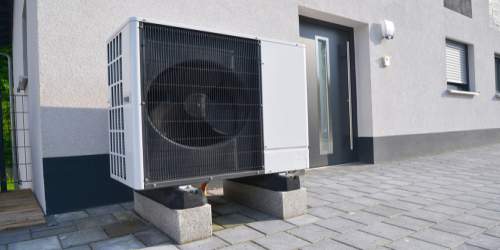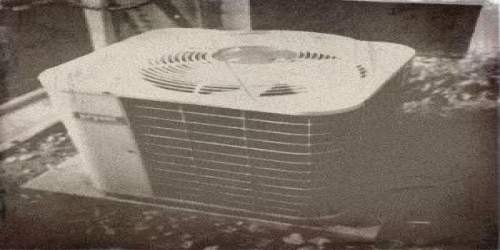Read Time : 3 Minutes
How Does a Ground Source Heat Pump Work?
Finding new, greener and long-term, cost-effective way to heat your home is a great way forward, and some of the first steps you can take towards helping the planet by reducing carbon emissions. If you are considering a ground source heat pump for your home, it is important to know how they work – as well as some of the pros and cons of investing in one.
What is a Ground Source Heat Pump?
The aspect that makes a ground source heat pump what it is, is the pipework. Typically, you can expect to find around 100m of it – all of which is either buried in loops in trenches, or vertically in boreholes. Once the pipework has been sufficiently buried, the surface of the ground can be restored and used for its original purpose. So whether the area was used as a driveway or a field on which you grow crops, it can be used again, and you would never even notice that the pipe had ever been installed.
COMPARE PRICES FROM LOCAL INSTALLERS
Compare prices from local companies fast & free
Enter your postcode to compare quotes from leading professionals. We promise to keep your information Safe & Secure. Privacy Policy
How Does a Ground Source Heat Pump Work?
The way it works is actually quite simple. It starts with liquid being pumped through the piping. Usually this will be in the form of antifreeze, but biodegradable options are available. This works to absorb the warmth that can be found in the ground. Next, a compressor that can be found in the main unit of the heat pump will raise the overall temperature of the fluid before a heat exchanger transfers the heat to a separate body of water. Once this has been done, it circulates around the central heating system and the water, now cooled, is pumped back out to the buried piping. After this, the cycle repeats itself constantly to keep your home warm.
However, it should be noted that your ground source heat pump will still generate carbon emissions. This is because the entire system runs off electricity. So while the emissions will be lower than other systems, such as conventional heating methods, they are still there. On another note, it is entirely possible to connect the system to a renewable source of energy, such as a wind turbine, in order to produce power.
Ground Source Heat Pump Systems
There are two primary types of ground source heat pump that you can have installed. These are the horizontal and vertical system. The one that you have installed depends on the amount of space that you have available, as both are installed underground.
The horizontal system tends to be laid in a shallow trench over a much wider surface area than their vertical counterparts. This is definitely the option you should go for if you have a great deal of space. On the other hand, the vertical system ensures the pipes are buried in a vertical borehole (or boreholes). These can be anywhere from 15m deep to 100m deep, all depending on what you need for you home.
It is essential that you remember to make sure the system you use is the correct size for your home and personal needs, regardless of the system you will be using.
The Advantages of Heat Pumps
- Heat pumps are much safer than systems that are based on combustion
- They are cheaper to run than oil and gas boilers
- The system reduces your carbon emissions
- It has an efficient conversion rate of energy to heat
- It requires less maintenance than combustion heating systems.
- Can provide cooling during the summer, essentially making it an air conditioner
- They have a very long lifespan of up to 50 years. As a result, they are extremely reliable and a steady source of heat
- You may be eligible for payment under the Renewable Heat Incentive (RHI) scheme
The Disadvantages of Heat Pumps
- Heat pump systems have relatively high initial purchase costs
- They can be difficult to install, especially as research must be undertaken in order to understand the movement of heat, local geology, as well as the heating and cooling requirements for your household
- Some of the fluids used for heat transfer are of questionable sustainability, and they raise environmental concerns, such as antifreeze. It is recommended to use biodegradable fluids
- The installation process will mean a great deal of work and disruption to your house as well as your garden. Work will be undertaken on the actual building, including penetration of the walls
- Electricity is required to run the heat pumps, which means that they will never be entirely carbon neutral unless hooked up to a renewable energy source (such as a windmill)
- Special planning permissions are required in Wales and Northern Ireland, whilst in England and Scotland, it depends on your location and size of your property
Want to Know More?
Have you found yourself interested in ground source heat pumps? If you want to know more then simply give us a ring using the number at the top of this page and have a chat.
Find a local installer
Welcome to the biggest directory of UK renewable energy companies





 How does a Heat Pump Work
How does a Heat Pump Work








